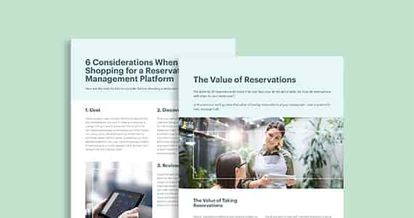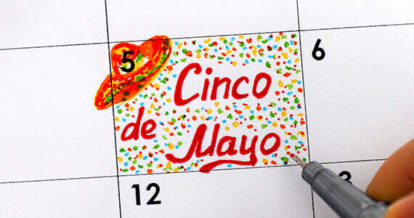Maybe you’ve got kids. Maybe you’ve got a fur baby. Or a partner, or school, or another job or a demanding social life. Perhaps you moonlight as an athlete or a creative. Maybe you manage a household or care for an ailing parent. Maybe you have a very serious relationship with your bed.
Whatever “it” is, balancing “it” with work never seems to even out. One is always over taking the other. Work-life balance is not so much about balance at all – it’s a negotiation. Especially in the 24/7/365 restaurant industry where it’s typical for chefs to work from open to close, managers to stay until the wee hours, and servers to work split shifts. They do all this while trying to maintain relationships outside the restaurant during what often seems like backwards hours.
According to one study, “One-third of participants found that overloaded work and family responsibilities had a high tendency to cause them to lose sleep or dramatically reduce their energy levels. This leads to everything from sick days to slower workers – perpetuating the cycle.” Not ideal for a job that demands a fast-paced line or hands-on service. What’s more, another study reported that 38 percent of employees have missed life events, like birthdays and anniversaries, because of bad work-life balance.
While there are myriad more statistics that prove work-life balance is necessary, it’s no secret the consequences of a work-work majority are detrimental to any business: burnout, employee dissatisfaction, resentment, high turnover. The good news is that managers’ mentality seems to be changing. Decision makers are starting to recognize and write about finding a healthy work-life balance in business management books. Surprise, surprise – balancing personal life with work achieves better results for employers, and an unhealthy balance, well, drastically reduces their effectiveness.
We all want to be effective. We all want to show up to work, bright-eyed and bushy-tailed and enjoy our day. At the same time, we want to show up for our life, for the people and activities we care about beyond the pantry. Especially in the restaurant industry, positive energy is infectious… and negative energy is contagious.
Here are a few things you can do as a restaurant employer and request as an employee to make work-life balance a part of your work experience.
Schedule Consecutive Days Off
You might not get both Saturday and Sunday, but two consecutive days off, wherever they fall, are enough time to rejuvenate and enough time to run errands – because chefs have to buy groceries too! Also known as the five-day work week, two consecutive days off in the restaurant industry can be difficult to attain. But it’s not impossible.
The owners of Mexican restaurants, Frontera Grill and Topolobampo, understand how important consecutive days off are. In fact, they thought about this before they even began. “They chose locations for their restaurants that allow them to close two days a week, Sunday and Monday. This permits everyone to have two days off in a row and gives the owners time for a life outside of the restaurant as well. They also close their restaurants for two weeks a year around Christmas so employees have time to spend with their families during the holiday season.” Who wouldn’t want to work there? #Perks.
One-Hour Dates
You’ve got an hour. Make the most of it! Go for a walk with your partner; take the kids to the park if you’re nearby. Solo? Grab a book and sit in a booth or go to a neighboring café. Split shifts may take up the majority of your day, hindering your ability to get anything big done, but with careful planning, you can make the most out of that precious hour.
Use Your Vacation
The numbers: read them, and then go to a beach, to a park, to a movie. Somewhere. Anywhere. Watch a sunset. Turn off your phone. Here we go: “Americans fail to use 429 million vacation days every year. If American workers used all of their available time off, the U.S. economy could reap an additional $160 billion in total business sales each year, supporting 1.2 million new American jobs. Furthermore, this additional economic activity would generate more than $21 billion in taxes.” Holy bananas: take your vacation, people. You’ve earned it and you’ll be far better off in the long term.
Make Up Holidays You’ve Missed
Christmas, Hanukkah, Boxing Day, New Years, Thanksgiving, St. Patrick’s, Diwali, Yom Kippur, Eid-Al-Fitr, Valentine’s Day – chances are you’re working. Date night? Birthdays? Oh yea, those too. But just because you’ve missed the actual day, doesn’t mean you have to forego the holiday entirely. On your next day off, make time to celebrate with your friends and family, just as you would on the regular day, as long as the holiday permits. That way, you won’t feel like you’re missing out.
Cultivate Trust by Cultivating People
While restaurants, like all industries, grapple with the work-life negotiation dilemma, eventually you must trust in the people and the technology you work with to get the job done without you there. You need to recharge. So when you’re on the clock, train the people around you. Share your knowledge and skill set. Be proactive in training and delegating so when you need time off, you can take it, with the piece of mind that everything won’t fall apart in your absence.
Download your free employee handbook template
Sign up for our free weekly TouchBistro Newsletter







